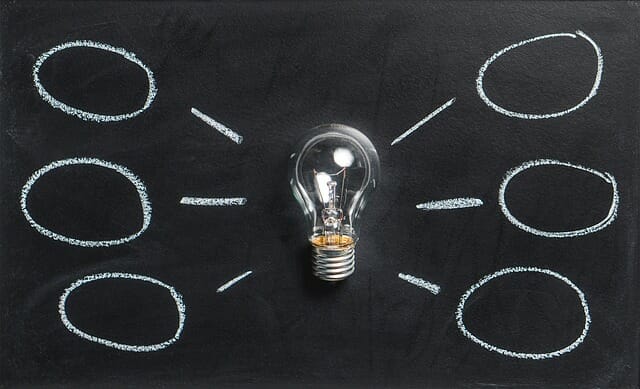Have you decided to learn more about the mighty mind mapping technique? Before you even start, you might be wondering if it is even worth investing your precious time into reading about it or if doing so would be a complete waste of energy. This article will explore the effectiveness of mind mapping so you can start your journey knowing if it will yield results.
The mind mapping technique is most commonly used to present information in a visual manner, focusing on one central idea. This tool was presented in the 1970s by Tony Buzan, who wrote numerous books on the exploration of the mind and whole brain thinking.
To create a map, you would start with one main idea or key word, written in the middle of a piece of paper or your screen (if you are using an online mind mapping tool). Then you can elaborate on this central topic by adding various branches and listing other useful information until you are satisfied with the end result. Sounds quite simple, right?
This technique is supposed to help you with brainstorming, improving your memory, academic tasks, creative writing, problem-solving and generally increasing your productivity. It all sounds good on paper, however, you would probably like to know more about the actual mind map effectiveness before you start learning about it. Here we go…
Is there some proof for effectiveness of mind mapping?
Yes, there is. This article will list just some of the results of various research related to mind mapping. You can find more information and the full report on Mind Mapping with Scientific Research and Studies prepared by the Buzan’s Organization here.

The fact that mind mapping focuses on one central idea actually follows the way our brain functions, which is in a radiant manner or center-out. Research shows that the effectiveness of mind mapping is related to the fact that our brain likes to work on the basis of association, working from one basic concept. The brain can then connect every idea to even thousands of other ideas and concepts. This is not the case with the good old linear note taking, which is more restrictive to our thinking process.
Letting our brain think in the way it is supposed to increases memory and information recollection. A study by Farrand, Hussain, and Hennessey (2002) found that mind mapping actually improved the long-term memory and recollection of information in students by 10%.
Mind mapping also has other advantages when it comes to academic purposes. Goodnough and Woods (2002) discovered that when students used mind maps, they perceived studying as a more pleasant activity. This shows that mapping can actually serve as a motivational approach for studying.
When it comes to structuring meetings, essays, etc., a study by Holland et al (2003/2004) shows that mind mapping proved to be a useful technique for helping students plan and structure their essays and other projects more effectively. Students improved the structure and the general quality of their written work and were also able to use the technique for managing projects, which can also be valuable in a professional environment.
Additionally, mind mapping is a potent tool for problem-solving. Kamble and Tembe (2013) researched the effectiveness of mind mapping for problem-solving on the performance of two groups of engineering students. They discovered that the experimental group of students who were taught a certain topic with concept maps significantly improved their performance in problem-solving. On the contrary, the group which was taught the same material using traditional teaching methods did not obtain the same results.
Final thoughts
To sum up, you can definitely see that mind mapping is indeed a technique designed to enrich your daily life. There is evidence for the effectiveness of mind mapping for all the main application areas, be it organizing meetings, problem-solving, writing essays or any other. This was proven by various research, meaning that you will definitely not lose time by learning more about it. We therefore strongly encourage you to try it as you will discover new advantages of its use on a daily basis.

